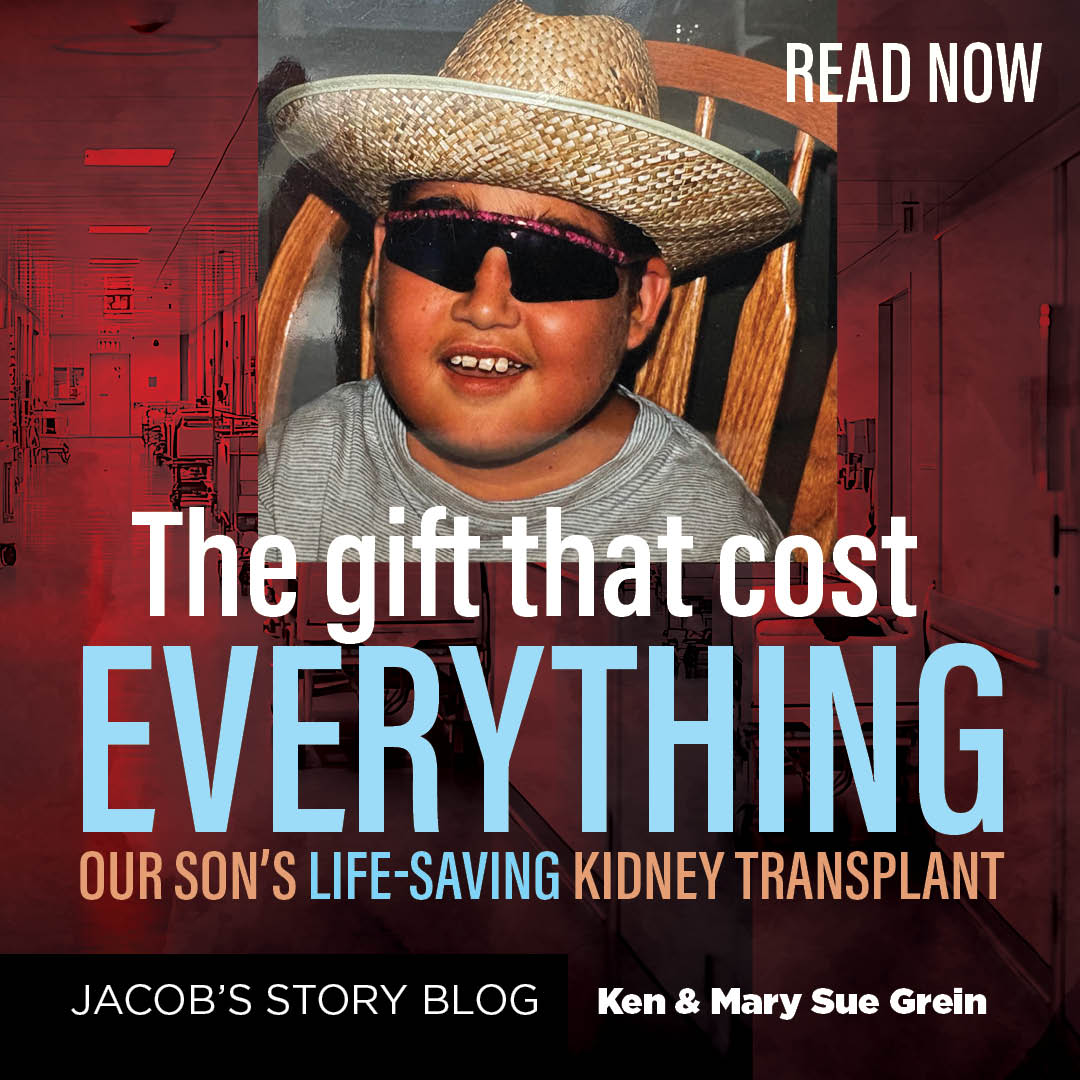The Gift That Cost Everything: Our Son’s Life-Saving Kidney Transplant

By Ken and Mary Sue
The call came at 3 AM on a Tuesday. After two years of peritoneal dialysis and waiting, Jacob finally had a kidney match. But as we raced to the hospital in the pre-dawn darkness, we carried a crushing knowledge—somewhere, another family was experiencing the worst night of their lives so our son could have his best chance at life.
For two years, we’d lived in what we called “the waiting room of life”—that space between knowing Jacob needed a transplant and actually receiving one. The doctors had been clear: peritoneal dialysis wasn’t a permanent solution. Jacob’s kidney function was failing, and without a transplant, we’d eventually lose him.
During those months of waiting, we wrestled with questions that had no easy answers. Who would give up a kidney for our son? Would someone have to die for Jacob to live? Would his body accept or reject this gift? Because of his multiple disabilities, would doctors decide he wasn’t worth saving compared to someone else? “The heart of man plans his way, but the Lord establishes his steps” (Proverbs 16:9). We had to trust that God’s timing was perfect, even when ours felt urgent.
The Morning Everything Changed
When we discovered through a newspaper article that Jacob’s kidney came from a teenage suicide victim, our celebration turned complex. Within a four-hour window, we experienced the full spectrum of human emotion—immense gratitude colliding with devastating grief for a family we’d never meet.
We were preparing Jacob to receive new life without telling him someone had died to give it to him. How do you explain to your son that his miracle came at such a cost? Something felt wrong about accepting this gift that we simultaneously desperately needed and wished we didn’t have to receive.
We wanted to thank the donor family, to somehow bridge the gap between their loss and our gain, but hospital protocol kept us separated. We believe God allowed us to connect the dots that morning so our family could pray for theirs. In that moment, we understood something profound about sacrifice—that the greatest gifts often come wrapped in the deepest sorrow.
Twenty-Four Years of Borrowed Time
In 1995, doctors told us they only had ten years of data on kidney transplants. They couldn’t promise Jacob’s new kidney would last longer than a decade. We faced the possibility of going through this entire process again when Jacob was older, potentially sicker, and the outcomes less certain.
But Jacob’s transplant gave him twenty-four years of life—more than double what the medical data suggested possible. Twenty-four years of watching movies with his family, of going to work each morning with pride, of hugging his sisters and bringing joy to everyone around him. “For I know the plans I have for you, declares the Lord, plans for welfare and not for evil, to give you a future and a hope” (Jeremiah 29:11).
We became vigilant guardians of that gift, never missing anti-rejection medications, never taking a single day for granted. We knew that doing our part was essential to honoring both the medical miracle and the family who made it possible.
What We Learned About Gifts and Sacrifice
Modern medicine can tell you what it can treat, prevent, and diagnose, but it can’t explain why some people receive miracles and others don’t. Ultimately, we learned to put our trust not in medical outcomes, but in the God who had already kept Jacob alive through so many impossible situations.
Jacob’s transplant taught us that the most precious gifts often come at the highest cost—not to us, but to others. Somewhere, a family said goodbye to their teenager so our son could say hello to decades more of life. That knowledge humbled us daily and motivated us to make every year, every day, every moment count.
When Jacob passed away in 2019, that kidney was still functioning. Twenty-four years of bonus time, all because someone else’s family chose to give life in the midst of their deepest loss. That’s not just medical success—that’s grace made visible.
Sometimes the greatest miracles aren’t about what medicine can do, but about what love is willing to sacrifice.